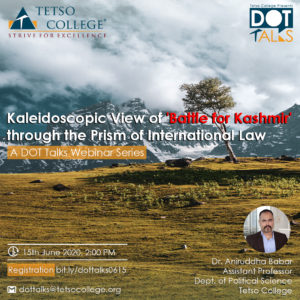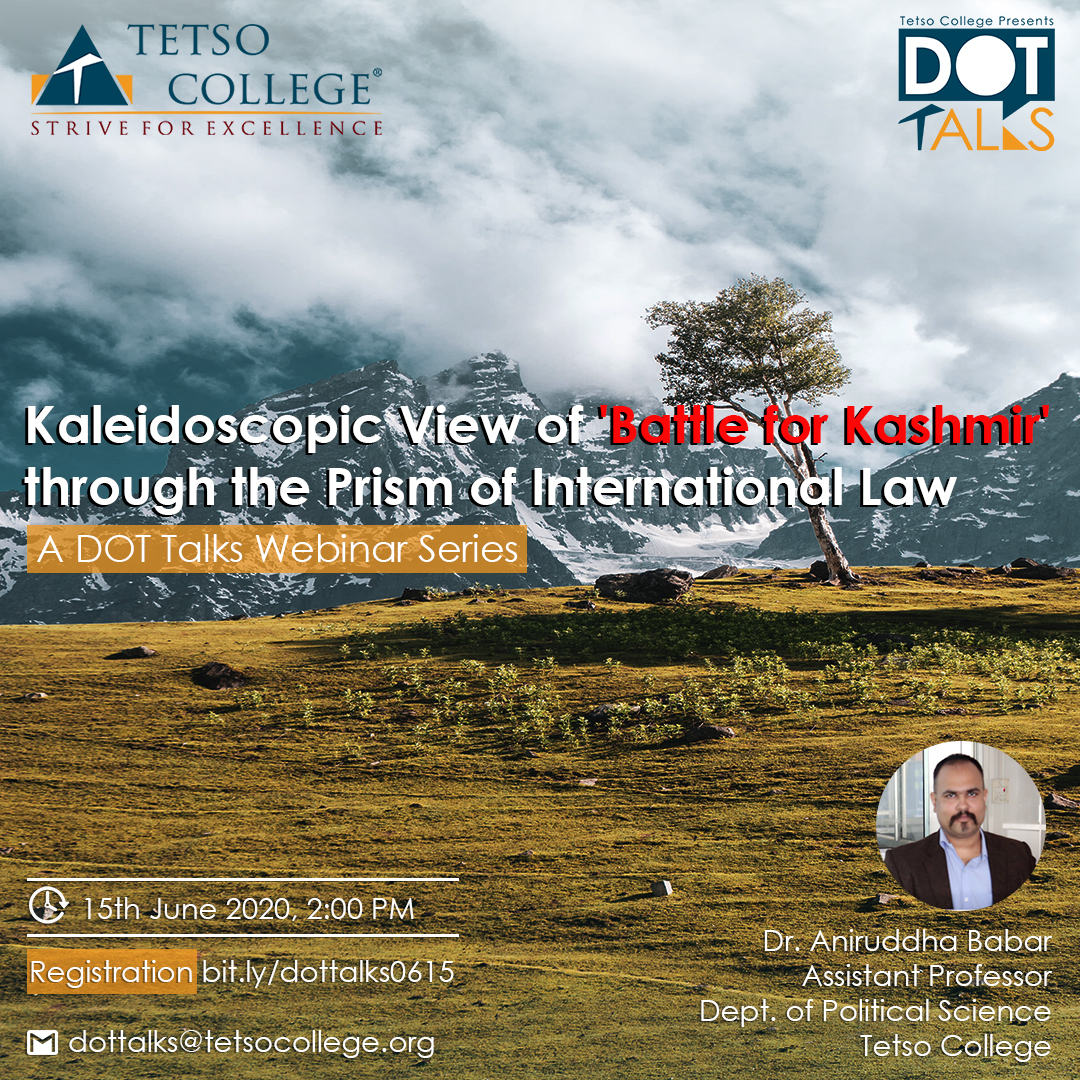
Kaleidoscopic View of ‘Battle for Kashmir’ through the Prism of International Law
Cartographic ‘Genius’ is hollow and meaningless without the might of sword backed by the power of ‘TRUTH’. The Sovereignty and jurisdiction of a state is laid out by maps and maps alone. They have been there for over 70 years and that ultimately is the ‘claim’ of India. India has claimed all of ‘Pakistan occupied Kashmir’ since the Instrument of Accession (through which the erstwhile princely State of Jammu and Kashmir acceded to India) was signed in 1947 by the last Dogra King of Kashmir H.H. Maharaja Hari singh. The UNSC resolution of 1948 which is available on internet for perusal clearly states that 1. Pakistan is aggressor in state. 2. Issue is between State of J & K and India. 3. Pakistan has to vacate all occupied territory in state that it occupied by force and handover the vacated territory to India. 4. India has to remove all its forces leaving aside enough to maintain law & order. 5. India to conduct plebiscite in state. However, as per the official records Pakistan asked for time to vacate its occupation but it never complied. As 1/3 state of J& K was under occupation of Pakistan and this was taken as noncompliance of necessary legal conditions leading to plebiscite, hence India could never conduct plebiscite in state of J & K. It is pertinent to note that the ‘state’ is defined and understood as it existed on or before invasion of Pakistan on 22nd October 1947, includes present territory of POK-Gilgit, Baltistan and our Jammu, Laddakh and Kashmir valley. After getting badly defeated in wars that were fought with India in 1947-48, 1965, 1971 Pakistan resorted to the revival of its old unconventional, asymmetrical warfare tactic that it had used to create anti-India sentiments in Raja Hari Singh’s Kashmir Empire-The Politics of Separatism and Rebellion through the machinery of Militancy which has been continued till date. In the context of Indo-Pak disputes, military escalations and failure of Summit Diplomacy, the attacks and counter-attacks, unconventional-asymmetrical warfare have raised debates on various academic platforms in colleges, universities, various research groups, think tanks and media all over the world as to their legality in the context of International Law. Can Army of a sovereign country enter in the territory of another sovereign country without its consent? Has India attempted to redefine the ‘Doctrine of Hot Pursuit’ which is an important legal doctrine of the ‘International Laws of the Seas’? In the context of inability of Pakistan to take necessary action against Terrorist Launch-pads in its territory is India compel to resort to tactics like ‘Surgical Strike’? Can future of Indo-Pak relations be predicted the way Indian Meteorological Department has shown its capability to predict the weather of Pakistan Occupied Kashmir? Let’s Debate!
About the Speaker:
Dr. Aniruddha Babar (PhD, MA, LLM, M.Th, DHRL) is currently working as Asst. Professor, in the Department of Political Science at Tetso College, Dimapur, Nagaland. He is a non-practicing Lawyer, former Asst. Professor of Law, founding member of People’s Law Centre; Mumbai, independent researcher as well as a Freelance Writer with interdisciplinary temperament, also a poet by heart, philosopher by nature and an adventurer by soul. His research interests include International law, Constitutional Law, Public Policy, Tribal Studies, South –East Asian Studies, Dr. Ambedkar’s Thoughts and Philosophy, Applied Politics, Idea of justice, Peace & Conflict Studies, Northeast Studies, Subaltern Studies, Gender Studies & Sexuality, People’s Movements and Human Rights.
Date: 15th June 2020
Time: 2:00 PM
Registration Link: bit.ly/dottalks0615








